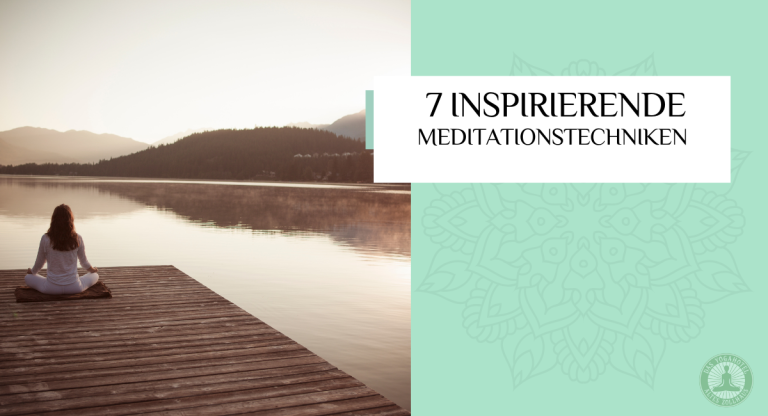Alkalising starts in the mind
Stress leads to an increased production of acids in the body. And not only during physical exertion such as strenuous sport or nutritional stress caused by highly processed food, but also during mental stress. This is because the hormone cortisol is increasingly released, which leads to the formation of acids when it is broken down in the body.
Mental stress can arise in acutely stressful life situations. But even in "normal" everyday life, we often subliminally or chronically feel more tension than necessary. This is because our thought patterns, beliefs and habits can continuously cause stress on a small scale. For a relaxed lifestyle in the long term, it helps to dissolve these habits step by step and to change or reduce beliefs or thought patterns.
1. meditation
Meditation helps you to detach yourself more from thoughts. Thinking less may sound like "dumbing down" at first; however, on closer inspection you often realise that many thoughts can be superfluous or stressful. Freeing yourself from thinking when it is not needed can bring more ease and serenity into your life.
There are many different forms of meditation. Many of them involve focussing your thoughts on a specific meditation object and keeping them there - they are concentration exercises, so to speak. A common and always available option is to follow the breath with complete concentration: the inhalation and exhalation, and the pause in between. Notice every little part of your breathing. Try it - you'll be amazed at how clear your head feels afterwards!
Other forms of meditation are more explicitly aimed at relaxation. Here, for example, you listen to a guided thought journey that helps you to relax mentally and physically. Many of these can be found on YouTube or in meditation apps.
Try to incorporate a meditation time every day. Perhaps this will become a time of day that you particularly look forward to.
2. stay with yourself
There may be some circumstances in the world that we do not consider ideal. Also, sometimes people say or do things that we would do differently or see differently. Sometimes there is a temptation to get upset about it. Why is that? Because this upset often changes little in the world, but makes you feel less good.
My experience is that if you concentrate on yourself, you often have enough to do. And when I tidy up my own space, I realise that sometimes other people's things don't bother me as much as they used to! This doesn't mean that I have to leave everything in the world as it is. I can change things if I see a better way. But if this happens from an attitude of serenity, it is more pleasant for you and also more effective in some cases. Others may then be able to accept advice or input more openly.
3. authenticity
Staying with yourself also means getting to know and feel yourself. What do I want, what do I feel, what is important to me, what do I want to do right now? Sometimes we orientate ourselves on what we think others want - without knowing exactly whether they actually want that from us. Or we are guided by guidelines that we learnt many, many years ago, perhaps as a child - but which perhaps no longer quite fit our present situation.
When we learn to feel our body and follow the signals, stress often falls away as we become more authentic and less in conflict with our impulses or inspirations. Of course, the process of becoming more authentic can feel stressful for a short time: perhaps we are afraid of the consequences. Perhaps we are not yet able to rationalise our impulses. Maybe we are afraid of offending others (and maybe we do).
But in the long term, you create the life that suits you. And others will learn that you are an authentic person - and may also orientate themselves more towards this.
We wish you every success in making your life as serene and joyful as possible.








